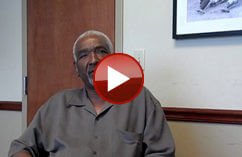East Ridge Dog Bite Lawyer
Dogs are beloved family pets, steadfast workers, and to many, family. However, a dog may become dangerous and bite a person, causing injury. Tennessee has specific laws regarding dogs and public safety. If someone else’s dog attacks you, an East Ridge dog bite lawyer could help determine if you are owed compensation from a negligent owner. Our dedicated personal injury attorneys could help you fight for the justice you deserve and the financial compensation you need.
Leash Laws and Owner Responsibility
The best way to keep dogs from attacking and biting people is to keep them under control. The leash law in Tennessee states that owners must be in control of their pet dogs. Dogs are not permitted to roam unattended. Owners do not have to leash a dog on their own property, but the dog cannot wander onto another person’s property or into the street or other public areas. The exception to this law is when the dog is legally hunting or herding. An East Ridge attorney familiar with dog leash laws could determine whether a dog bite amounts to a personal injury.
East Ridge Leash Law Violation
When the leash law is violated in some Tennessee counties, including Hamilton, the dog that runs at large can be impounded in a shelter for five days or more. The pet owner will have to pay an impound fee before getting the dog back. If the dog runs at large again, the impound fee will increase with each subsequent violation of the leash law.
Tennessee Dog Bite Laws are Unique and Complicated
Tennessee laws changed in 2006 after three dogs killed a woman in a residential neighborhood. Before this attack, dog owners could not be held accountable for dog attacks unless they knew their dogs had previously been violent. This was called the first bite rule.
Strict Liability in Dog Bite Cases
Under Tennessee’s strict liability law, it no longer matters whether a dog has been violent in the past. An owner has a duty to control the dog and keep it from running loose. The owner will be liable for dog bites if the dog is uncontrolled, with some exceptions including when:
- The dog is on duty for the military or police
- The victim is trespassing on non-residential private property where the dog may be herding
- The dog is protecting its owner from being attacked
- The plaintiff harassed or provoked the dog
- The victim is on the dog owner’s residential property
Because the law is nuanced, an East Ridge attorney may be helpful in reviewing the facts of a dog-biting incident and advise clients about their potential claim.
The Problem with the Exception of Being on the Owner’s Property
Under Tennessee’s strict liability law, if a victim is on the dog owner’s property when bitten, the victim must prove that the owner knew the dog had dangerous propensities. As an example, a child visiting a cousin whose family owns the dog may not be able to recover damages if the dog bites the child, although a stranger bitten in a dog park would be able to recover. An experienced Tennessee personal injury attorney specializing in dog bites could review evidence to find if a dog has a dangerous past.
Instead of Strict Liability, Negligence May be a Tort Claim
If a dog bite occurs on the dog owner’s premises, filing a negligence claim may be an option. A plaintiff will have to prove that the dog owner had a duty to keep the visiting plaintiff safe from a dog attack but did not. The dog bite also must be the actual and proximate cause of the injury. An East Ridge personal injury attorney familiar with dog bites can explain the reasons why a negligence lawsuit might be preferable to one in strict liability.
An East Ridge Dog Bite Lawyer Can Help
Dog attacks cause painful wounds and a victim may suffer from the trauma for a long time. To receive compensation for medical bills, pain, suffering, and lost wages, whether the owner was innocent, negligent, or acted intentionally, requires knowledge of Tennessee’s complicated statutes governing animal attacks. Contact an East Ridge dog bite lawyer for a free consultation about your rights.














